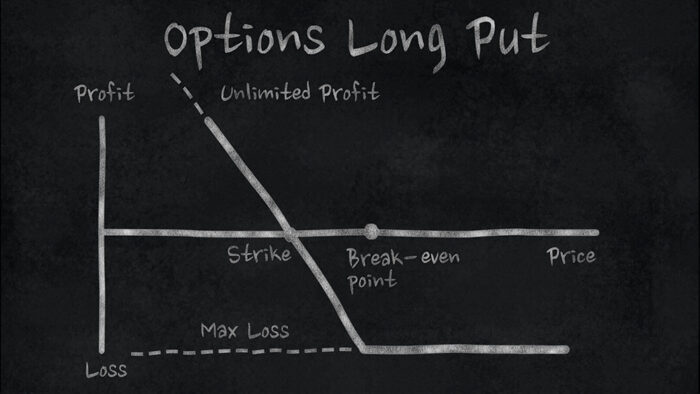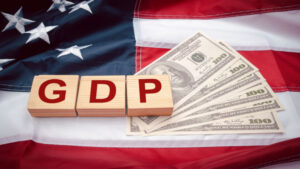Market participants are digesting a wealth of information this morning as they navigate the nucleus of earnings season alongside influential economic data. Equities are looking at strong earnings from Meta and from other companies to regain their footing this morning after losing momentum and drifting lower in the last six trading days or so. On the economic front, today’s first quarter GDP growth release was positive, but well below economists’ expectations. This afternoon won’t be short of fireworks either, as investors sit on the edge of their seats in suspense while they await earnings results from Amazon.
Today’s Gross Domestic Product (GDP) data from the U.S. Bureau of Economic Analysis was a mixed bag. Consumption was on fire, as consumers enjoyed spending on both non-necessities and essentials. Business investment was also strong as corporates spent funds on structures and intellectual property products while contracting equipment spending was a soft patch. Goods exports and government spending also contributed to growth during the quarter, exceeding the negative impact from a decline in services exports.
Headwinds were strongest concerning inventories, as retailers have slowed their goods purchasing in anticipation of slowing consumer spending. Real estate also weighed heavily on results, with residential investment contracting significantly as builders hunkered down due to the buyers’ drought amidst historically low home affordability. Goods imports rose strongly, while services imports contracted modestly, contributing negatively to the headline.
First quarter real GDP growth, or GDP growth in excess of inflation, came in at 1.1%, significantly below the 2% expectation and the 2.6% rate notched in the final quarter of 2022. The growth rate was the slowest since the second quarter of 2022, which was -0.6%. Personal consumption was stellar, rising a whopping 3.7% during the quarter, the fastest rate of growth since the pandemic era stimulus season of the second quarter of 2021, during which consumption grew 12.1%. The first quarter 12.5% investment contraction was the steepest decline for the category since the second quarter of last year, when the category declined 14.1%. For the first quarter of this year, government spending grew 4.7%, the fastest rate since the first quarter of 2021.
Stocks are responding in stride, as they move to emerge out of the weakness of the past week. Tech is leading this morning on the back of encouraging results from Meta, with the tech-heavy Nasdaq Index up 1.7% while the cyclically tilted Dow Industrials and Russel 2000 Indices are up 0.7% and 0.4% respectively. Meanwhile, the S&P 500 Index, a more-broad market indicator, is up 1.1%. Equities are looking to avoid the roller coaster ride that occurred yesterday, when morning losses reversed to gains before cratering to the lowest levels of the day and finding firm support at 4050. Bonds are up across the curve, between approximately 4 and 13 basis points (bps) as Fed rate hike expectations remain firm alongside inflation expectations against the backdrop of an unrelenting consumer. Bond yield action is supporting the greenback, with the Dollar Index climbing 0.2%. Oil is experiencing a dead cat bounce with low momentum after giving up significant price gains. WTI Crude Oil is up 0.23% to $74.47 on tighter U.S. inventories but well below the $83.53 per barrel price just last week that resulted from OPEC + announcing additional production cuts.
Earnings reports show that consumers are continuing to splurge on travel and entertainment while simultaneously looking for lower cost alternatives, at least for entertainment. The following quarterly results from Mastercard and Roku illustrate these trends.
- Mastercard reported $2.4 billion in adjusted earnings or EPS of $2.80, a 1% increase from the first quarter of last year as currency, staffing and acquisition impacts boosted expenses. It generated $5.7 billion in adjusted revenue, which was a 12% increase from the year-ago quarter revenue of $5.1 billion. Mastercard exceeded the analysts’ expectation of $2.71 EPS and revenue of $5.6 billion. Mastercard benefited from consumers increasingly dining out and strong travel that resulted in cross-border volume of transactions increasing 35% y/y and continuing a string of at least five quarters during which the category grew by at least 30% y/y.
- Streaming device and content provider Roku reported a first-quarter net loss of $193 million, or $1.38 a share and $741 million in revenues. Analysts estimated a loss of $1.47 a share and sales of $708 million. The quarter marked a substantial increase in y/y losses, with Roku’s first quarter 2022 producing a $26.3 million loss comparable to $0.19 a share. Revenue, however, increased from the $646.9 million generated in the year ago quarter. During the recent quarter, advertising revenues from travel and wellness improved but other sectors, such as media and entertainment, and financial services remained pressured. Citing consumers’ desires to reduce discretionary spending, Roku anticipates a strong trend of individuals cancelling cable TV in favor of streaming television. Roku also said it anticipates its current quarter to be similar to the first quarter and estimates that revenues will reach $770 million compared to the $767 million expected by analysts.
The following earnings results from Caterpillar and Meta illustrate that certain pockets of the economy are still strong, but corporations are decreasing their advertising in anticipation of a recession.
- reported net income of $2.4 billion and EPS of $4.91, up from the EPS of $2.88 a year ago. The company’s revenue of $15.9 billion climbed 16.7% from the $13.6 billion in the year-ago quarter. Analysts estimated EPS of $3.79 per share and revenue of $15.3 billion. The company reported that it succeeded with increasing sales volume and prices, and it is experiencing healthy demand across most markets. The impact of adverse currency exchange rates was a headwind for results, but Caterpillar said its revenues for its machinery, energy & transportation offerings increased 17% y/y. Within the category, energy & transportation led, growing 24% y/y with increased sales of engines and turbine equipment for the oil and gas industry. Its power generation category experienced similar demand increases while its transportation group benefited from increases in rail services and marine demand. Moreover, Caterpillar experienced stronger demand for locomotives abroad. Separately, revenues from Caterpillar’s financing division increased 15% y/y, benefiting from higher interest rates.
- Facebook operator Meta reported first-quarter earnings of $5.71 billion or EPS of $2.20 a share, exceeding consensus expectations of $2.01 a share. Earnings declined 24% from a year ago, when Meta posted $7.46 billion in net income or $2.72 a share. Its recent quarter revenues of $28.65 billion also exceeded expectations, with analysts expecting $27 billion in revenues. While profits declined y/y as the company continues to invest in artificial intelligence and its metaverse service, revenues were up 3% y/y from $27.9 billion. The revenue growth occurred after three quarters of declining sales. In an indication of businesses scaling back expenditures, Meta’s price per advertisement, an indicator of Meta’s main business, decreased 17% y/y. However, the company’s number of monthly users on its apps increased by 5% y/y to more than 3.8 billion.
The Fed’s Quandary
Today’s GDP results create a quandary for the Federal Reserve and are driving investors to increasingly anticipate earnings calls later today from Amazon to better assess consumer spending. As the fed prepares to meet next week, investors will also assess tomorrow’s PCE report for March, which may provide important insights into the direction of the economy during the ongoing quarter. Many market watchers suspect that first quarter consumption was front loaded during a busy January.
Meanwhile, the Fed is still fighting high core inflation, so its task of curtailing price gains without pushing the economy into a tailspin has become increasingly challenging with a ferocious consumer. Strong earnings from Amazon and Apple, however, could help alleviate concerns that the economy is contracting too fast, but it could also raise concerns that strong consumer spending is supporting inflation.
The 1.1% GDP reading would have been weaker if it weren’t for the huge boost in consumer spending. However, the 3.7% spending increase failed to lift GDP above 2%, which paints a warning for the fate of the economy if consumers slow down later this year. Meanwhile, the Fed is still fighting high core inflation, so its task of curtailing price gains without pushing the economy into a tailspin has become increasingly challenging with a ferocious consumer. Strong earnings from Amazon and Apple, however, could help alleviate concerns that the economy is contracting too fast, but they could also raise concerns that strong consumer spending is supporting inflation.
Visit Traders’ Academy to Learn More about Gross Domestic Product, Personal Income and Outlays and other Economic Indicators.
Disclosure: Interactive Brokers
Information posted on IBKR Campus that is provided by third-parties does NOT constitute a recommendation that you should contract for the services of that third party. Third-party participants who contribute to IBKR Campus are independent of Interactive Brokers and Interactive Brokers does not make any representations or warranties concerning the services offered, their past or future performance, or the accuracy of the information provided by the third party. Past performance is no guarantee of future results.
This material is from IBKR Macroeconomics and is being posted with its permission. The views expressed in this material are solely those of the author and/or IBKR Macroeconomics and Interactive Brokers is not endorsing or recommending any investment or trading discussed in the material. This material is not and should not be construed as an offer to buy or sell any security. It should not be construed as research or investment advice or a recommendation to buy, sell or hold any security or commodity. This material does not and is not intended to take into account the particular financial conditions, investment objectives or requirements of individual customers. Before acting on this material, you should consider whether it is suitable for your particular circumstances and, as necessary, seek professional advice.
Disclosure: Futures Trading
Futures are not suitable for all investors. The amount you may lose may be greater than your initial investment. Before trading futures, please read the CFTC Risk Disclosure. A copy and additional information are available at ibkr.com.























Join The Conversation
If you have a general question, it may already be covered in our FAQs. If you have an account-specific question or concern, please reach out to Client Services.